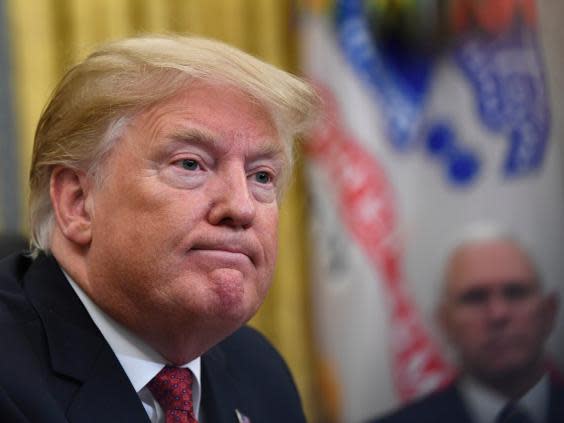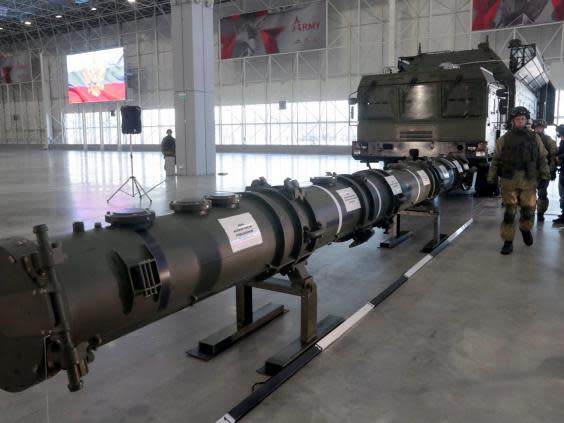Trump set to pull out of nuclear treaty with Russia within hours
The US is set to suspend a 32-year-old nuclear weapons treaty with Russia within hours amid fears the move could trigger a new arms race.
Secretary of State Mike Pompeo is expected to announce the withdrawal from the Intermediate-Range Nuclear Forces (INF) pact on Friday, just over three months after Donald Trump first announced his intention to terminate it.
The move has received widespread criticism, with former president Mikhail Gorbachev – who signed the original treaty with Ronald Reagan in 1987 towards the end of the Cold War – describing it as “not the work of a great mind.”
However it was supported by UK defence secretary Gavin Williamson, who claimed Russia had been “making a mockery” of the agreement.
The INF treaty was the first arms control measure to ban the US and Russia from possessing or test-firing ground-launched cruise missiles with a range between 300 and 3,100 miles.
In October, during a visit to Nevada, Mr Trump claimed Russia has been violating the agreement for many years, adding: “We are going to terminate the agreement and then we are going to develop the weapons.”
The US has repeatedly accused Russia of breaking the pact by developing a cruise missile, known as 9M729. NATO ambassador Kay Bailey Hutchison said: “Russia consistently refuses to acknowledge its violation and continues to push disinformation and false narratives regarding its illegal missile.
“When only one party respects an arms control treaty while the other side flaunts it, it leaves one side vulnerable, no one is safer, and discredits the very idea of arms control.”

In December, Mr Pompeo said the US would withdraw unless Russia complied with its terms within 60 days. That deadline expires on Saturday, although the withdrawal would only take effect in another six months, allowing room for further attempts to resolve the dispute.
On Thursday Nato spokeswoman Oana Lungescu said there were no signs of a breakthrough following talks this week in Beijing.
“So we must prepare for a world without the treaty,” she added. “Nato must maintain credible and effective deterrence and defence. At the same time, allies are committed to arms control. We must look at new initiatives: a new arms race would be in no one’s interest.”

Russia had denied violating the pact and deputy foreign minister Sergei Ryabkov was quoted by the state news agency Tass as saying: “The position of the American side is very tough and like an ultimatum.”
Nuclear weapons experts at the Carnegie Endowment for International Peace said in a statement that while Russia’s violation of the treaty is a serious problem, US withdrawal would be counterproductive.
“Leaving the INF treaty will unleash a new missile competition between the United States and Russia,” they said.
Democrats in Congress have described a withdrawal as a “win for Russia.” Elliot Engel, a Democrat member of the House Committee on Foreign Affairs, said: “President Reagan concluded this treaty to reduce the risk of war in Europe.
“We owe it to our allies and to the American people to do everything we can bring Russia back into compliance and preserve peace. A quick withdrawal will simply be a win for Russia and clear the way for our chief adversary to expand its missile arsenal.”
Additional reporting by Associated Press
